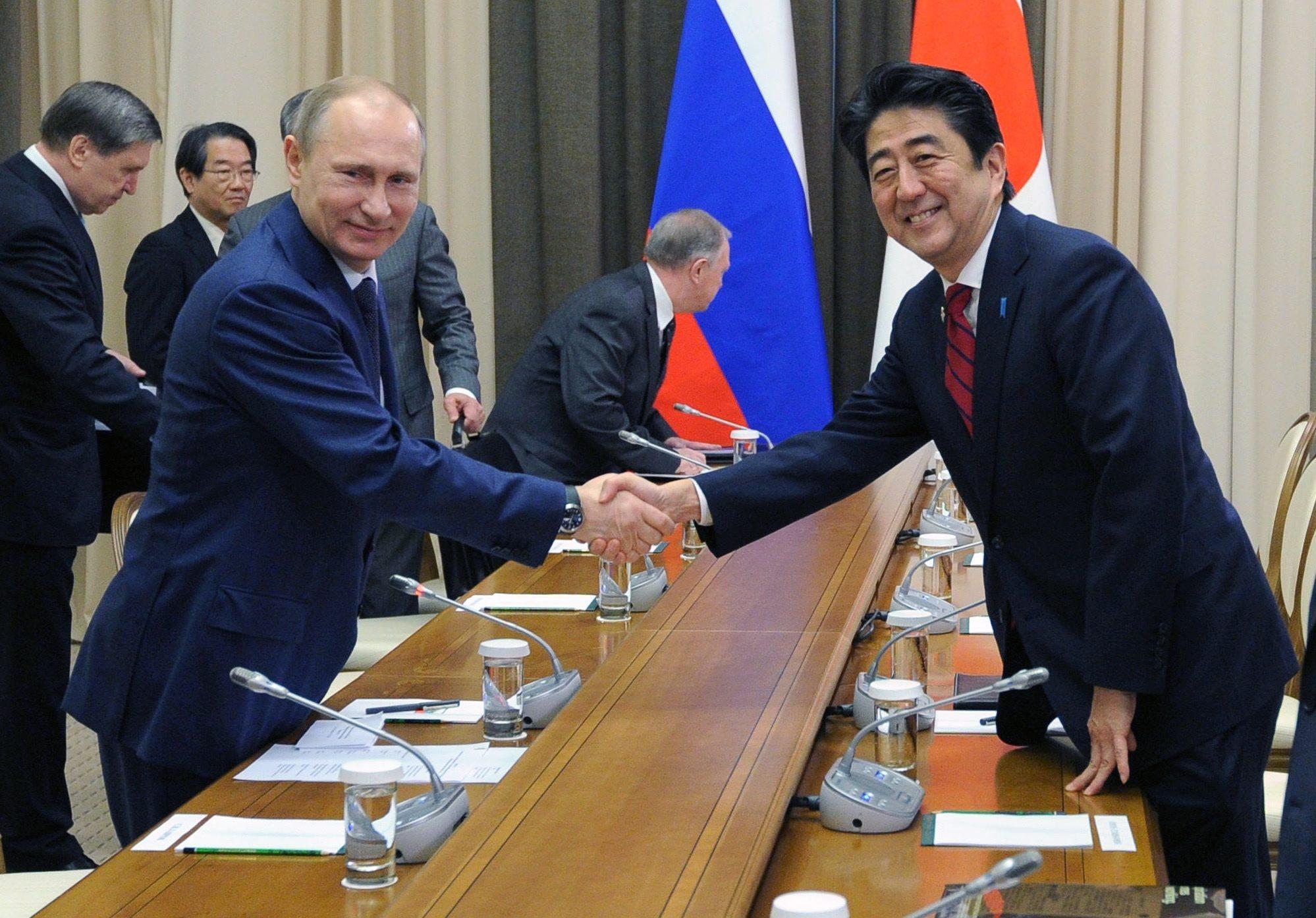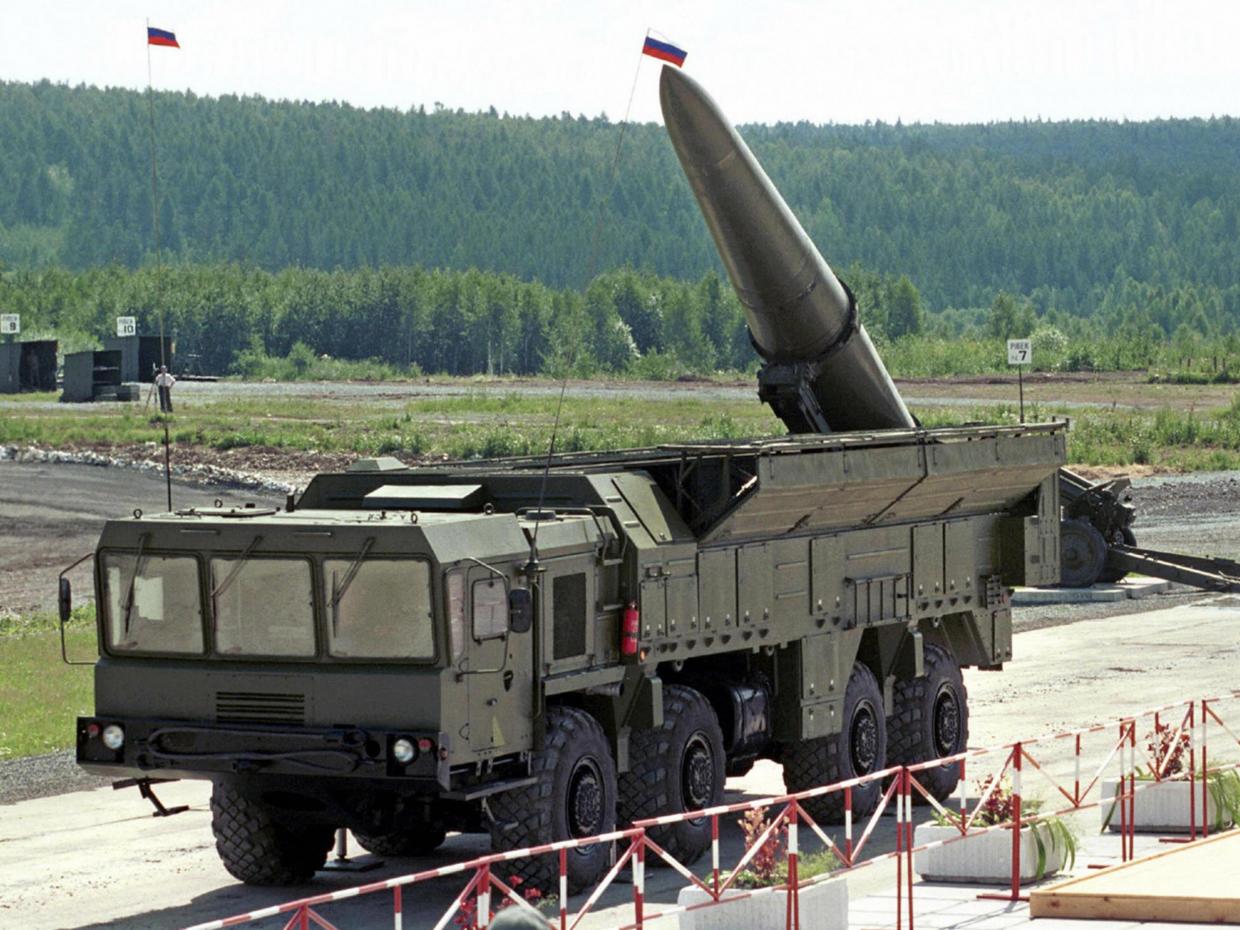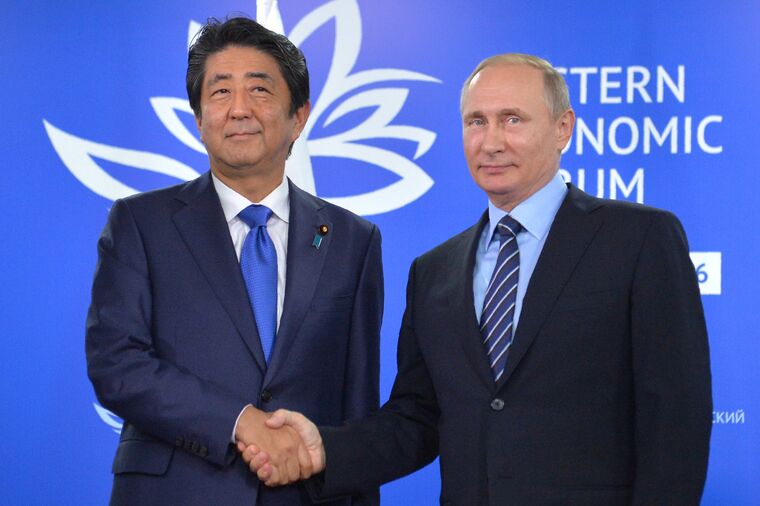|
|
Post by Admin on Oct 6, 2016 18:35:37 GMT
 Japan views the Russian occupation of the islands as illegitimate. Russia considers the matter settled because Japan launched and then lost a war of aggression, and therefore must accept the loss of territory as a just consequence.  Today, however, Russian President Vladimir Putin and Japanese Prime Minister Shinzo Abe appear to be the unlikely partners in finally settling the matter. These two nationalist hawks may be in a position to cut a deal that more moderate predecessors never could.  Russia is now struggling under severe U.S.-led international sanctions, imposed in response to Moscow’s 2014 annexation of Crimea and continuing support for armed separatists in eastern Ukraine. With commodity prices, particularly oil, in a prolonged slump, Moscow is in urgent need of investment from Japan.  Japan, for its part, may be less certain of Washington’s seven-decade-long security guarantee in light of China’s increasing military forays in the South China Sea. Tokyo is also monitoring what looks like widespread American skepticism about far-flung military commitments, now most famously channeled by Republican presidential nominee Donald Trump. Facing these conditions, Russia and Japan both view enhanced economic and political ties as crucial to a stable balance of power in Northeast Asia, where a rising China is flexing its muscles and North Korea seems increasingly unpredictable. |
|
|
|
Post by Admin on Oct 13, 2016 18:25:14 GMT
 Japan views the Russian occupation of the islands as illegitimate. Russia considers the matter settled because Japan launched and then lost a war of aggression, and therefore must accept the loss of territory as a just consequence. Today, however, President Vladimir Putin and Prime Minister Shinzo Abe appear to be the unlikely partners in finally settling the matter. These two nationalist hawks may be in a position to cut a deal that more moderate predecessors never could.  Russia is now struggling under severe U.S.-led international sanctions, imposed in response to Moscow’s 2014 annexation of Crimea and continuing support for armed separatists in eastern Ukraine. With commodity prices, particularly oil, in a prolonged slump, Moscow is in urgent need of investment from Japan.  Japan, for its part, may be less certain of Washington’s seven-decade-long security guarantee in light of China’s increasing military forays in the South China Sea. Tokyo is also monitoring what looks like widespread American skepticism about far-flung military commitments, now most famously channeled by Republican presidential nominee Donald Trump.  Facing these conditions, Russia and Japan both view enhanced economic and political ties as crucial to a stable balance of power in Northeast Asia, where a rising China is flexing its muscles and North Korea seems increasingly unpredictable. |
|
|
|
Post by Admin on Oct 15, 2016 18:27:41 GMT
Russia shipped a sophisticated nuclear-capable missile system toward its territorial exclave bordering Poland, according to Western government officials, introducing a powerful military asset into an already tense region and prompting expressions of concern by allied officials. A Russian naval ship, according to the officials, was observed carrying an Iskander missile system toward the country’s Kaliningrad port. Kaliningrad is a seaside exclave of Russian territory between Poland and Lithuania.  Iskander missile systems are mobile and carry two solid-propellant single-stage guided missiles. While there are various versions of the system, the guided missiles have a range of between 250 and 310 miles. That would give it access to most of the territory of the Baltic states—Lithuania, Latvia, and Estonia—and their southern neighbor, Poland. Missiles launched from versions of the Iskander system could reach from Kaliningrad well into Germany, U.S. military officials have said. This presents challenges for the American-made NATO missile defense system, which is designed to intercept missiles traveling much longer distances.  On the Russian side, the military has deployed increasingly sophisticated surface-to-surface missiles and mobile infantry divisions capable of seizing all three Baltic states within 60 hours, according to a recent analysis by the Rand Corporation, a U.S.-based think tank. |
|
|
|
Post by Admin on Oct 20, 2016 18:25:17 GMT
 If recent statements by Shinzo Abe and Vladimir Putin are any indication, Japan and Russia may be moving closer to resolving a seven-decade-old row over four disputed islands.  During his two spells as prime minister dating back to 2006, Abe has held 14 meetings with the Russian president to press his case for a resolution and make progress toward signing a peace treaty to balance chilly ties with China. To sweeten the deal, Japan is offering economic aid to Russia, which is struggling to climb out of a recession.  "We must resolve this during our own generation," Abe told parliament Monday of his most recent talks with the Russian leader last month. "I told Putin that we should proceed with negotiations with a sense of responsibility, on the basis of a strong determination to resolve this in our own times. Basically, I think President Putin agreed with this." |
|
|
|
Post by Admin on Nov 1, 2016 18:32:36 GMT
The Japanese government is considering promising to Russia that returning four disputed islands to Japan will not mean that US military forces will be stationed there in line with Japan-US security arrangements, diplomatic sources said Saturday. Tokyo believes such a promise will facilitate negotiations on the dispute over Russian-administered, Japanese-claimed islands off Japan's northernmost main island of Hokkaido because Russia is particularly sensitive about US military moves.  The idea has surfaced ahead of Russian President Vladimir Putin's trip to Japan in December, with Japan seeing the visit as a key chance to make progress on the decades-old territorial row. The row has prevented the two countries from concluding a post-World War II peace treaty. The islands of Etorofu, Kunashiri and Shikotan along with the Habomai islet group are called the Northern Territories in Japan and the Southern Kurils in Russia.  According to the sources, Russia has told Japan it stands by the 1956 Japan-Soviet Joint Declaration, which states Moscow will hand over the smaller Shikotan Island and Habomai group of islets after concluding a peace treaty with Japan. |
|